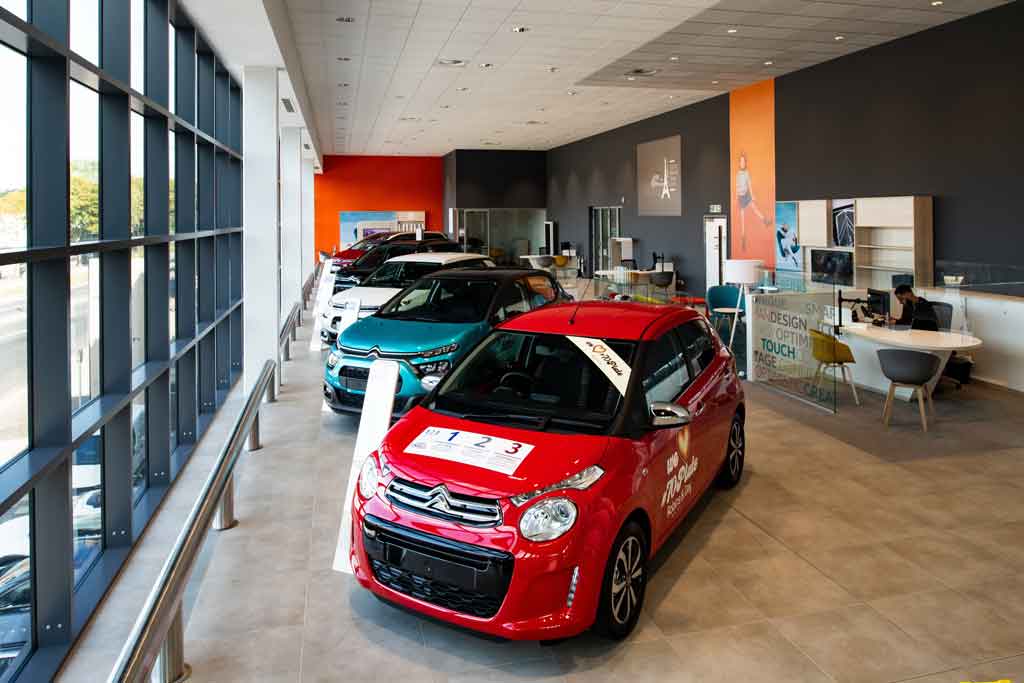
Salesrooms reached a crossroads in 2020. In their rear-view mirror, some grim perspectives loomed. Two years before, number crunchers at KPMG forecasted half of them will be gone by the middle of this decade, while online comparison site Carwow declared that we’re quickly moving into a retail landscape where the car buying process is virtually complete by the time customers decide to set foot onto a forecourt.
Wind back to 2016 and industry watchers were reporting that 75 per cent of new car buyers watched videos of their prospective purchases online. Step-by-step, or click-by-click, the showroom has been becoming merely a place we visit for final, hands-on confirmation that we’re making the right purchase.
In fact, if you like to analyse underlying trends in graphs that aren’t Covid related (there’s a novelty), we’ve been falling out of love with showrooms for longer than that. The strongest measure of indifference towards the showroom experience registers among younger buyers, while female interest – an economic force the car industry has long been accused of failing to engage – is at best lukewarm. How did it get to this?
Let’s pull some of the freshest figures over for interrogation. Auto Trader has commissioned new research that shows 41 per cent of us will consider buying our next car online (a four per cent increase on last year’s result). It’s how we buy everything else, after all. And when a brand offers remote purchase with home delivery plus a seven-day cooling off option, the figure rises to 61 per cent.
Of course, many drivers would shrug at the lack of an option to use the showroom as their opportunity to haggle, but we’re not all so minded: 23 per cent of respondents to Auto Trader’s survey said they preferred to avoid any haggling whatsoever. In other words, you, a discerning Diesel Car and Eco Car reader, might believe it’s all about the money, but Covid has cattle-prodded us into accepting doing just about anything via a Zoom call. If you can address your granny’s emotional wellbeing via a screen, the logic goes, you can surely thrash out a deal on a new Focus.
How can physical car sales combat the advance of digital alternatives? One statistic, this time from Motor Trader in 2018, might offer a clue. Men made up 84 per cent of the sales teams found in UK dealerships. Automotive Management Online says that dealers need to sort this gender imbalance, given its own finding that 90 per cent of female consumers wouldn’t visit a car dealership without a male partner or friend.
Unsurprisingly, women are 71 per cent more likely to buy a car online, BuyaCar.co.uk found in 2019. And yet all of this is at a time when women are reported in the UK to be outnumbering men in terms of new sales activity. In the USA, often a telling forecast for what’s coming here, they are accountable for 62 per cent of all new cars sold, not to mention influencing 85 per cent of all purchases.
Tap into that reality, by making the showroom experience less blokey and more inclusive, and we may see a stronger future for traditional dealerships. Many might choke on the word, but if dealers look to feminise the experience, they may be building upon their key strength. When Auto Trader researched what holds people back from buying online, it discovered “aspects such as emotional points – wanting to touch, feel and look at the car, as well as wanting to drive it” were crucial.
So with industry analysts screaming that dealerships need to blur the digital with the physical, it will be paramount that future showrooms are a multi-sensory experience, delivering the tactile value that’s crucial to making an informed buying decision. As audit consultants Deloitte concludes in its report The Changing Landscape of the Dealership, dealers also “need to ensure they are diversified and willing to adopt new technology to embrace disruptors so that they can turn potential challenges into opportunities”.
But with three in ten women telling the website Car Dealer that they believe auto retailing is “inherently sexist”, that embrace needs to be as quick as it is careful.
© Motorworld Media 2023
Registered Office: 4 Capricorn Centre, Cranes Farm Road, Basildon, Essex. SS14 3JJ
Company Number: 8818356
Website designed by Steve Dawson